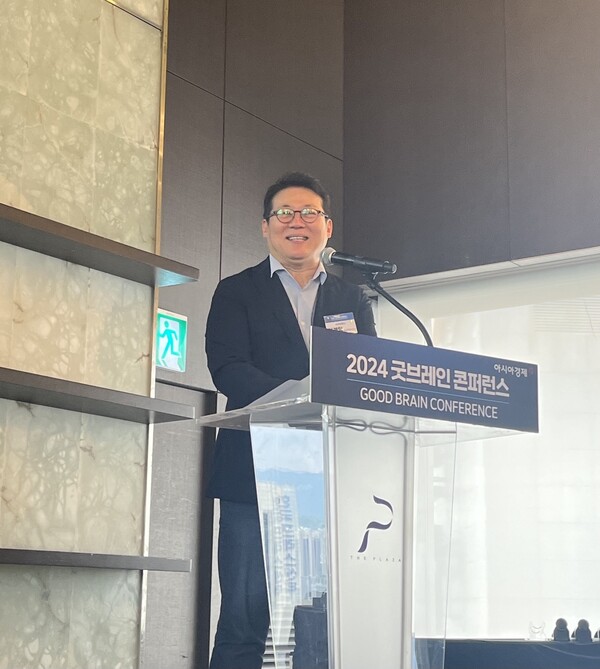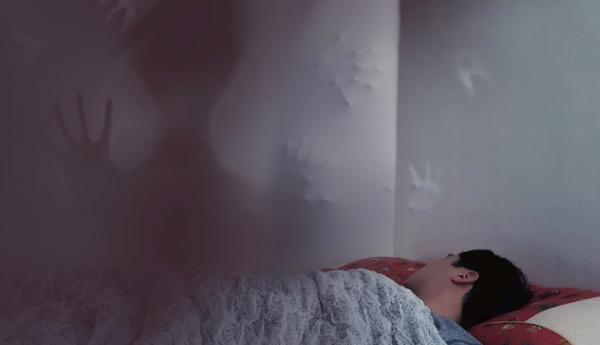About six years ago, a seemingly minor error at a Korean securities firm sparked a scandal. A single keystroke mistake coupled with a flawed formula diverted the salaries of 200 employees into the accounts of just three workers.
Instead of reporting the glitch, these employees—each now holding nearly 70 salaries—quietly withdrew the money and disappeared. They were caught within days, but the damage was done. The CEO, initially stunned by the blunder, was further shocked by the betrayal from trusted employees. He suspected personal crises or severe stress might be behind their actions.
The real reason, however, was far more bizarre: all three had gone 48 hours without sleep.

“This case might sound extreme, but truth is, many financial disasters in Korea stem from sleep-deprived workers who are otherwise honest,” said Kim Kyung-il, a psychology professor at Ajou University, during the Good Brain Conference in Seoul on Wednesday.
The event, themed "Sleep, Brain Health, and Digital Tech," highlighted the importance of sleep and brain health for a healthy life.
Korea's burnout culture fuels sleep crisis
According to Kim, almost every catastrophic event humanity faces—whether from tragedy or human error—can be traced back to one common culprit: sleep deprivation.
Specifically, he said, individuals who manage with less than two hours of sleep — their judgment clouded by exhaustion — are responsible for much of the chaos in society.
Koreans sleep an average of an hour and a half less than the OECD average of 8 hours and 22 minutes. Those with full-time jobs sleep an additional hour less, resulting in a two-hour sleep deficit. Sleep satisfaction among Koreans is also alarmingly low, with a rating of just 2.87 out of 5, a figure that has been steadily declining each year, according to a 2019 wellness trend report.
Kim attributes this crisis to a “cultural and economic idealization of sleep deprivation” in Korean society, where burning the midnight oil is often glorified as a badge of honor.
Yet, international researchers describe Korea as a "high-stress society," where sleeplessness and anxiety are tightly woven into daily life, a sharp contrast to Japan's characterization as a "lonely country."
Kim explained that loneliness in Japan results from the inability to connect with desired individuals, whereas stress in Korea arises from constant encounters with unwanted people. Despite the severe loneliness in Japan, Kim suggested that, from a sleep perspective, stress might be "marginally more manageable than loneliness."
In contrast to Japan’s rigid social boundaries, Korea’s culture thrives on intrusions and constant interaction. Kim pointed out that in Korea, individuality is deeply ingrained, with people feeling compelled to influence others.
“Unlike Japan, where social boundaries are strictly respected, Korean society is one where boundaries are meant to be crossed,” Kim said, explaining that Koreans frequently intrude into others’ lives, believing their words or actions can drastically alter another person’s situation. “This constant interaction breeds a heightened state of arousal and stress.”
In this high-arousal society, sleep is often demonized. While many nations might go through periods of intense stress, Kim points out that Korea has been “stuck in this heightened state for decades,” leading to an ingrained culture of sleep neglect. Harsh language around rest is common, and the notion of a full night’s sleep is almost treated as a sign of laziness.
“In Korea, there’s a widespread belief that success demands sacrifice,” Kim said. “All-nighters are often encouraged by mentors, teachers, and peers.” This push to stay awake, to keep working no matter the cost, is fueling a national sleep crisis that has implications for both health and productivity.

Chronic sleep deprivation linked to health risks and behavioral issues
While the culture of sleepless ambition may seem like a fast track to success, the consequences—both individual and societal—are proving to be catastrophic.
Excessive sleep deprivation is directly linked to mortality, with chronic lack of sleep often correlating with a higher risk of serious diseases. Research shows that sleeping less than seven hours a night significantly raises the risk of early death.
But beyond the physical toll, the psychological impact is just as alarming. Individuals suffering from poor sleep, whether through deprivation or decreased quality, exhibit disturbing shifts in behavior.
One fascinating area of research is the link between sleep and personality traits. For instance, extroverts—who typically thrive on social energy—show a marked increase in suicidal thoughts, attempts, and even suicide rates when deprived of sleep. Kim said that while extroversion brings a lot of energy, without sleep, this energy can "quickly morph into impulsiveness."
This impulsiveness, compounded by further sleep deprivation, can lead to hypersensitive reactions and a distorted, pessimistic interpretation of the world. As sleep deprivation worsens, the brain’s prefrontal cortex—the center for decision-making and impulse control—becomes compromised, "raising the likelihood of tragic outcomes," Kim said.
What becomes clear is that insufficient sleep doesn’t just dampen a person's strengths; it amplifies their weaknesses. Research increasingly shows that sleep deprivation accentuates the negative traits of one’s temperament rather than enhancing natural abilities. The consequences are far-reaching, affecting everything from mood stability to impulse control.
Another study found that losing just one hour of sleep can dramatically reduce a person's willingness to help others. Those who consistently sleep 1.5 hours less than their norm showed a marked decline in altruistic behavior, with typically generous individuals becoming less likely to perform simple acts of kindness, such as giving directions or offering help.
The study also noted that their capacity for empathy—particularly their sensitivity to others’ suffering—plummets.
This decline in empathy doesn’t just affect interpersonal interactions; it even extends to the medical field. Sleep-deprived doctors, for instance, are less likely to prescribe adequate doses of pain medication and may misinterpret patients' facial expressions, potentially leading to life-altering mistakes.
“To maintain national peace, we must ensure that doctors—and other key professionals—are well-rested,” Kim said. "A sleep-deprived doctor is a grave threat to a patient’s well-being."
Korea is extending its life expectancy rapidly while also experiencing a significant decrease in population, leading to a society where people must work longer and where diverse groups must coexist and interact. “In a society where we are living longer and working harder, understanding the importance of sleep becomes even more crucial” Kim emphasized.
Related articles
- Long-term use of REM sleep behavior disorder drug does not affect cognition
- [Interview] Navigating dementia and health through Korea’s cultural lens
- Smart ring for 24/7 blood pressure monitoring costs less than $5 for Korean patients
- SNUBH completes drug-induced sleep endoscopy AI data project with flying colors
- 'Study pressure, screen time exacerbate sleep deficit in Korean teens'
- Does lack of sleep cause cancer to recur or metastasize?
- 1st pediatric insomnia drug launched in Korea
- Suicide counseling surges in Korea but treatment referrals plummet
- AI model using sleep-wake patterns predicts mood disorder episodes
- ‘Korean trainee doctors work far longer than their US, Japanese counterparts’

